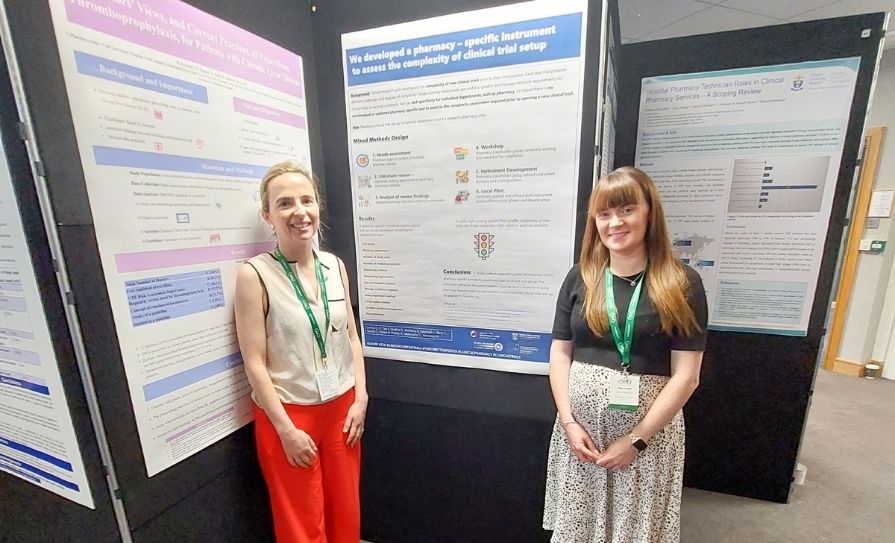The launch hosted by Trinity College Dublin featured keynote speakers from London School of Economics and Politics and the European Observatory on Health Systems and Policies
The impact of Covid-19 on the Irish health system, the Government’s response to the pandemic and the ways in which the HSE can prepare for the next crisis have been highlighted in a new report launched recently by Trinity College Dublin. International speakers from the London School of Economics joined leading researchers from Trinity’s Centre for Health Policy and Management, School of Medicine, to launch the PRESTO Report: An Analysis of Resilience and Sustainability in the Irish Health System.
The Centre’s RESTORE (Resilience TO Reform) research team also presented their latest research on healthcare reform, which will inform and support the ongoing development and implementation of Sláintecare.
LOW CAPACITY
The PRESTO report suggests that Covid-19 provided a profound stress test for the Irish health system. Going into the pandemic, the Irish system had low capacity, with very long waiting lists for acute and community care. The Government was concerned about its health spending and the rapidly ageing population, as well as the challenges of implementing Sláintecare.
The pandemic itself then created unprecedented demands on services and the workforce, placing huge strain on a system already under pressure.
However, the PRESTO report also shows that the Covid-19 pandemic provided opportunities to bring in reforms outlined in Sláintecare ahead of schedule. These included free healthcare for Covid testing and diagnostics, as well as new pathways of care in the community and online.
The report also highlights the central role the healthcare workforce plays in the delivery of services, and the important role of engagement and communication in staff retention.
Prof Steve Thomas, Edward Kennedy Chair of Health Policy and Management, Director of Health Policy and Engagement for the School of Medicine and PI for the RESTORE project, said: “The pandemic might have been so much easier had the system been better prepared. It is important to take key lessons into the next shock, which will probably not be another pandemic, but could well be closer to an economic shock.”
RESILIENCE
“A well-functioning health system also means a universal healthcare system where patients get access according to need, and not ability to pay. This may be particularly important if we face an economic shock with a huge hike in the cost of living. Covid-19 allowed such an approach to be trialled,” Prof Thomas added.
Dr Liz Farsaci, Research Fellow at the Centre for Health Policy and Management, said: “Sláintecare states that care should be provided in local communities, whenever possible. During Covid-19, we saw that this was possible, and people had greater access to local and affordable care. The vital services that healthcare workers provide, even in the face of uncertainty and burnout, was also acknowledged.
“As we move forward, we need to remember these lessons, and create a health system that provides access to care and values its workforce.”
CAREER PATHWAYS
Dr Arianna Almirall-Sanchez, a GP and PhD scholar on the RESTORE project, said: “It’s crucial to establish straight pathways for career progression within the health organisations. Enhancing the opportunities of training and improving the communication strategies are the best approaches for guaranteeing the engagement and the retention of the health staff.”
Ms Catherine O’Donohue, a PhD scholar on the RESTORE project, added: “Ireland entered the Covid-19 pandemic with low capacity, with hospital beds per capita among the lowest in the EU. The increase in critical care beds made during the pandemic in such a short space of time was impressive. This adaptability needs to be maintained into the future, and increasing capacity in the system overall is crucial.”
The PRESTO report is the result of a collaboration between researchers from the Centre’s RESTORE team and the global Partnership for Health System Sustainability and Resilience (PHSSR). The aim of the project is to ensure the Irish health system is able to continually provide services, while also being able to prepare for, adapt to, learn, transform and recover from shocks and accumulated stresses.
The Trinity research team examined the Irish system, but the international partnership carried out this study in 20 countries around the world.
The full report is available at: www.tcd. ie/medicine/health_ policy _management/ assets/pdf/phssr-rreland_report.pdf







